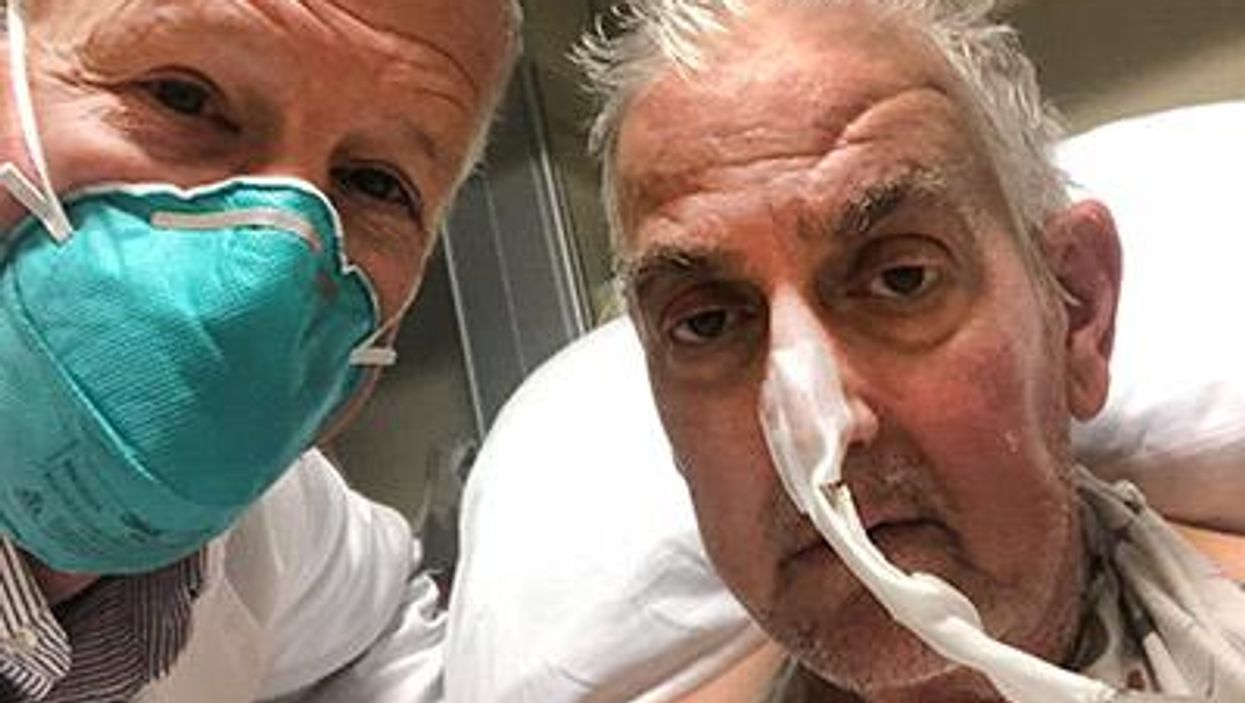The Guy Who Got A Pig Heart Transplant Once Stabbed A Man & The Victim's Family Isn't Happy
He went to prison for the attack in 1988.

This article contains graphic content that might not be suitable for some readers.
History was made last week when a man got the world's first successful pig heart transplant.
But new reports say that the recipient, David Bennett Sr., has a criminal record.
Bennett, 57, assaulted a man 34 years ago, leaving him paralyzed, The New York Times reports.
Bennett stabbed Edward Shumaker several times at a bar in Maryland in 1988, according to The New York Times, which cites court records. Shumaker spent the rest of his life in a wheelchair because of his injuries and died at age 40 in 2007.
“Ed suffered,” the victim’s sister, Leslie Shumaker Downey, told The Washington Post.
"The devastation and the trauma, for years and years, that my family had to deal with. Now [Bennett] gets a second chance with a new heart — but I wish, in my opinion, it had gone to a deserving recipient.”
Leslie's youngest brother was an EMT who responded to the attack. He struggled with guilt, blaming himself for dropping Edward off at the bar where the attack took place. Afterwards, he became addicted to opioids and died of an overdose in 1999 at age 28, according to the Post.
Bennett became the first person to receive a genetically modified pig heart transplant last week in a surgery conducted by doctors at the University of Maryland School of Medicine.
The procedure was called a "breakthrough surgery" and a step towards solving the organ shortage crisis.
UMMC performs first-of-its-kind surgery successfully transplanting a genetically-modified pig heart to terminal heart disease patient. Learn more: https://www.umms.org/ummc/news/2022/first-successful-transplant-of-porcine-heart-into-adult-human-heart\u00a0\u2026pic.twitter.com/ycgKYSYtWm— Univ. of Maryland Medical Center (@Univ. of Maryland Medical Center) 1641850954
Bennett was sentenced to 10 years in prison after being convicted on charges of battery and carrying a concealed weapon, and was ordered to pay restitution to Edward. The victim's family later sued Bennett and won $3.4 million in damages, according to The New York Times.
The University of Maryland Medical Center responded to the reports of Bennett's criminal past by saying that they provide "lifesaving care to every patient who comes through their doors based on their medical needs, not their background or life circumstances."*
"This patient came to us in dire need, and a decision was made about his transplant eligibility based solely on his medical records," they said.
Bennet received the transplant after being rejected by many hospitals for the procedure due to his poor medical history.
“It is the solemn obligation of any hospital or health care organization to provide lifesaving care to every patient who comes through their doors based on their medical needs,” said officials at the University of Maryland Medical Center.